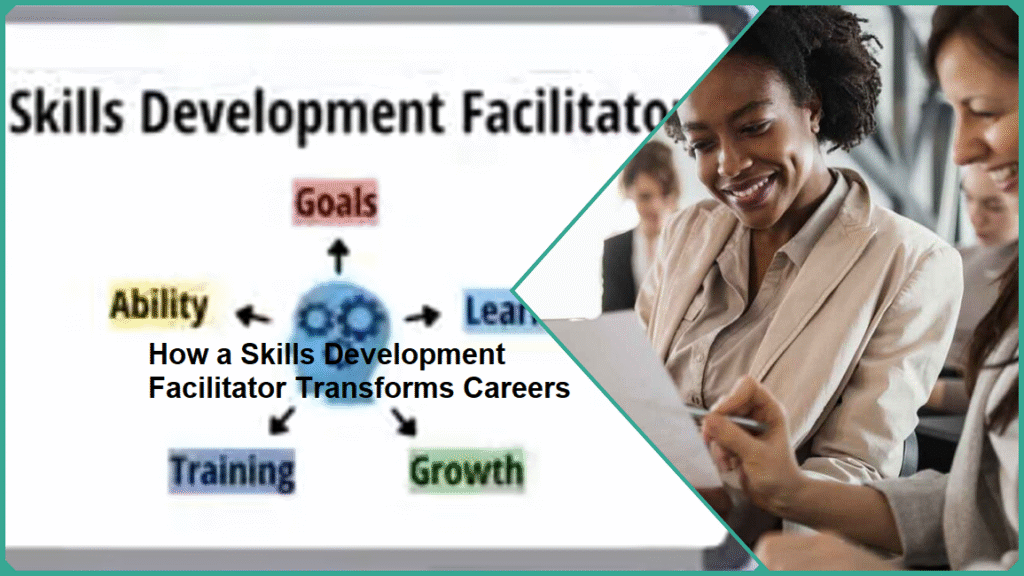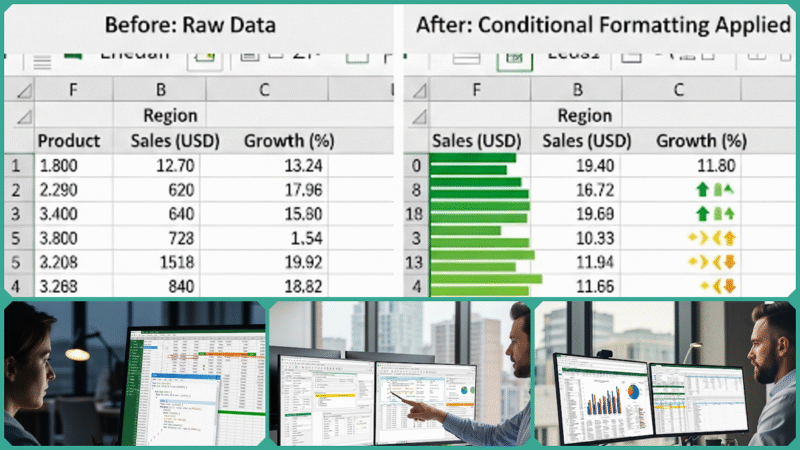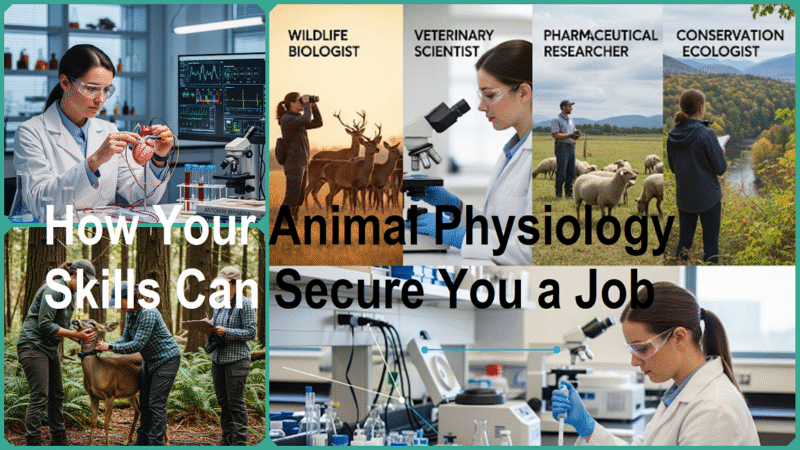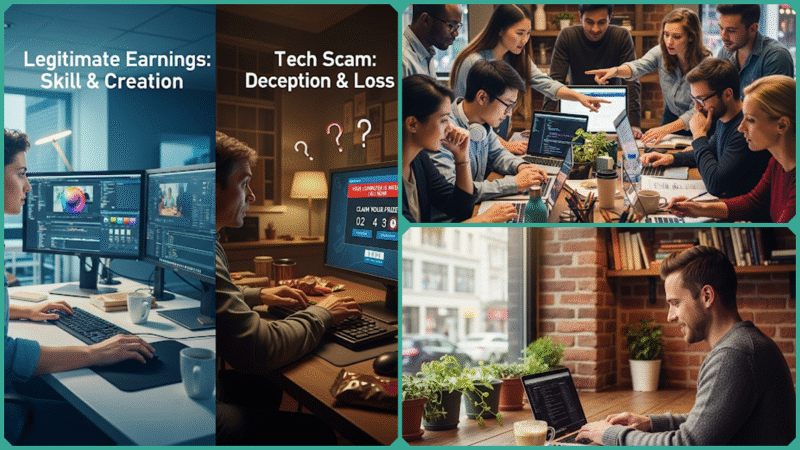How a Skills Development Facilitator Transforms Careers
Estimated reading time: 21 minutes
Staying relevant and competitive in today’s rapidly changing and highly dynamic job market requires much more than just having prior experience—it demands ongoing and continuous skills development that is specifically tailored to meet both current and future workplace needs. In this fast-paced environment, where industries and technologies are constantly evolving, the role of a Skills Development Facilitator (SDF) becomes incredibly important and transformative.
For professionals who are feeling stuck or stagnant in their current roles, those who are seriously contemplating making significant career changes, or individuals who are eager to accelerate their professional growth and reach new heights, partnering with a skilled SDF can serve as the powerful catalyst that propels their careers forward in meaningful and impactful ways.
Understanding the Role of a Skills Development Facilitator
A Skills Development Facilitator (SDF) is a highly specialized professional who plays an essential and pivotal role in effectively bridging the gap between an individual’s career aspirations and the constantly evolving demands and requirements of the modern labor market.

Unlike traditional trainers or coaches who primarily concentrate on delivering specific content or providing mentorship, an SDF adopts a holistic and strategic approach to career and skills development, ensuring a comprehensive and forward-thinking process that benefits both individuals and organizations.
What Makes a Skills Development Facilitator Different?
While trainers primarily concentrate on teaching specific skills and coaches focus on providing personal or professional guidance, an SDF integrates several critical and complementary functions to ensure that skills development is not only effective but also highly relevant and genuinely impactful. They collaborate closely with individuals as well as organizations to:
- Analyze skill gaps by conducting thorough assessments that carefully identify the specific skills and competencies that are currently lacking in employees’ existing roles or their future career aspirations and goals. This detailed evaluation helps to pinpoint areas where development is needed.
- Facilitate access to a wide range of accredited training programs that lead to officially recognized certifications, ensuring that the learning experience is both credible and fully aligned with current industry standards and best practices.
- Provide career counseling and mentorship, actively empowering individuals by offering guidance and support that enables them to make well-informed and thoughtful decisions about their professional journeys and future career paths.
- Align skills development initiatives closely with key organizational objectives, ensuring that efforts not only support individual career advancement and personal growth but also significantly enhance overall business performance and contribute to achieving long-term strategic goals.
Core Responsibilities of a Skills Development Facilitator
At its core, the role of a Self-Defense Force (SDF) member involves a variety of important and essential activities that are crucial to maintaining security and safety. These key activities encompass multiple responsibilities and duties that require dedication and skill.
| Responsibility | Description |
|---|---|
| Skill Gap Identification | Conducting detailed assessments to pinpoint existing skill deficiencies at the individual and organizational levels. |
| Tailored Learning Pathways | Creating customized learning plans that address specific needs, blending technical and interpersonal skills. |
| Training Program Facilitation | Coordinating and facilitating training interventions, often linking individuals to accredited courses. |
| Career Counseling & Mentorship | Offering guidance to help individuals navigate career choices and development opportunities. |
| Alignment with Workplace Goals | Ensuring that skills development supports both personal career ambitions and the strategic objectives of the employer. |
Why Skills Development Facilitation Matters for Career Growth
In today’s rapidly changing and fast-evolving job market, many professionals find themselves facing career stagnation—not because they lack effort, ambition, or dedication, but often due to outdated skills or uncertainty about the best ways to move forward and progress.
This is precisely where a Skills Development Facilitator (SDF) plays a crucial and vital role, serving as a career architect who guides and supports individuals in unlocking new opportunities, enhancing their capabilities, and accelerating their career growth in meaningful ways.
How an SDF Drives Career Progression
Here are the key ways in which an SDF significantly transforms and reshapes career trajectories over time:
Overcoming Career Stagnation
Many professionals often find themselves trapped in roles that offer very limited opportunities for advancement or growth. An SDF plays a crucial role by identifying new competencies that are highly critical and in demand in today’s ever-evolving market, thus enabling individuals to actively pursue promotions or lateral moves that can effectively refresh and revitalize their overall career path.
For example, by developing valuable skills such as digital literacy or project management expertise, a mid-level employee significantly increases their chances of qualifying for leadership roles or gaining access to cross-functional positions within their organization.
Navigating Career Transitions
Switching industries or roles can often feel overwhelming and intimidating without having clear and structured guidance to follow. A Skills Development Framework (SDF) plays a crucial role by helping to map out transferable skills—those versatile abilities and competencies that are applicable across a wide range of different sectors and job functions—and also by identifying the new skills that need to be acquired to effectively bridge any existing gaps.
This well-planned and strategic approach empowers individuals who are looking to change their careers to make their transitions much smoother, more manageable, and with greater confidence. For instance, an accountant who is moving into an IT support role can capitalize on their strong analytical skills while simultaneously acquiring essential technical certifications to succeed in the new field.
Accelerating Growth Through High-Demand Skills
Focusing on in-demand skills such as data analysis, leadership development, or digital marketing not only positions professionals ahead of the curve but also significantly enhances their career prospects. SDFs play a crucial role in ensuring that learning plans are carefully designed to emphasize these high-value competencies.
This targeted approach not only boosts overall employability but also opens doors to faster promotions, access to specialized roles, and greater opportunities for career advancement in competitive job markets.
Building Confidence and Motivation
Personalized support from a skilled SDF involves not only setting clear and measurable milestones but also offering continuous, ongoing feedback throughout the process. This well-structured approach plays a crucial role in helping individuals remain motivated, effectively monitor their progress over time, and build greater confidence in their abilities—key elements that are essential for achieving sustained and long-term career growth and success.
Real-World Impact: The Cape Town Example
In highly competitive job markets like Cape Town, professionals who actively engage with skilled facilitators consistently report significantly faster career advancement and a much better alignment with the expectations set by their employers. These facilitators provide valuable guidance and support that help individuals develop the precise skills and competencies needed to excel in their roles.
Additionally, organizations gain substantial benefits by cultivating a workforce that is equipped with relevant, up-to-date skills, which in turn enhances overall productivity, drives innovation, and maintains a competitive edge in the market.
By partnering with a skilled and experienced Skills Development Facilitator, professionals gain valuable clarity, focused direction, and practical, actionable strategies that empower them to effectively break through career plateaus and successfully thrive in an ever-evolving and constantly changing workplace environment.
Key Concepts and Theories Behind Skills Development Facilitation
To truly understand how a Skills Development Facilitator (SDF) transforms careers, it’s important to grasp several foundational concepts and theories that underpin their work. These concepts help explain the strategic approach SDFs use to bridge the gap between individual aspirations and labor market demands.
| Concept | Explanation |
|---|---|
| Hard Skills | These are technical abilities acquired through formal education or training, such as programming, accounting, or engineering. Hard skills often have a direct correlation with salary increases and job opportunities because they are measurable and in high demand. |
| Soft Skills | Interpersonal and cognitive skills like communication, problem-solving, teamwork, and leadership. These are crucial for workplace success and often differentiate candidates with similar technical abilities. Soft skills enhance adaptability and collaboration. |
| Facilitation | More than just teaching, facilitation involves guiding individuals or groups to actively engage, collaborate, and develop skills effectively. It creates an environment conducive to learning, reflection, and practical application. |
| Workplace Skills Plan (WSP) | A strategic document developed by organizations that outlines the current and future skills development needs of their employees. The WSP is often submitted to government bodies or sector education authorities to access training grants and ensure compliance with skills development legislation. |
| Sector Skills Plan (SSP) | A broader, industry-wide plan that identifies critical skills shortages and training priorities within a specific sector. SSPs inform funding decisions and help align training programs with market needs. |
How Skills Development Facilitators Combine These Elements
Skills Development Facilitators expertly integrate these key concepts and principles to carefully design, develop, and implement effective learning strategies that are:
- Relevant: Focusing specifically on the essential hard and soft skills that are critically needed and highly valued by both individuals and organizations in today’s competitive environment.
- Practical: Utilizing a variety of facilitation techniques designed to actively encourage participation from all individuals involved, while also emphasizing the application of concepts and skills in real-world scenarios to ensure meaningful and effective learning experiences.
- Aligned: Making certain that all development plans fully comply with the specific requirements and standards of the workplace and sector, thereby maximizing opportunities for securing funding and gaining formal recognition. This approach helps ensure that projects meet necessary criteria and stand the best chance of success within their respective industries.
By effectively leveraging these well-established frameworks, SDFs offer a highly structured yet adaptable approach that enables professionals to systematically develop the essential competencies required for meaningful career advancement and sustained organizational success.
This method not only supports individual growth but also aligns personal development with the broader goals of the organization, creating a harmonious pathway for both professional and company achievements.
Current Trends and Developments in Skills Development Facilitation
The role of Skills Development Facilitators (SDFs) is evolving at an increasingly rapid pace, driven by continuous technological innovations and the ever-changing dynamics of the modern workforce. These significant developments are fundamentally transforming how skills are identified, nurtured, developed, and ultimately applied in various professional contexts.
As a result, SDFs are becoming indispensable strategic partners who play a crucial role in supporting career growth and driving organizational success in today’s fast-paced and competitive environment.
Digital Learning Integration
SDFs are increasingly utilizing advanced e-learning platforms, immersive virtual classrooms, and sophisticated AI-driven assessments to both personalize and expand the reach of their training programs. These AI-powered learning systems continuously analyze each learner’s progress and adapt the educational content in real time, creating customized learning paths that align perfectly with each person’s unique pace and preferred learning style.
This innovative approach significantly boosts learner engagement, improves knowledge retention, and enhances overall accessibility, making it possible for continuous learning to take place well beyond the limitations of traditional classroom environments.
Data-Driven Skills Analysis
Advanced analytics tools provide facilitators with the ability to accurately identify specific skill gaps and forecast the future competencies that will be required within various industries. By thoroughly analyzing comprehensive workforce data, current labor market trends, and the strategic goals of organizations, Skills Development Facilitators (SDFs) can create highly targeted and effective development plans.
These plans not only address existing skill deficiencies but also anticipate emerging demands in the job market. This data-driven methodology guarantees that training investments deliver tangible and measurable returns while remaining closely aligned with the broader strategic priorities of the organization.
Focus on Soft Skills
While technical skills continue to be essential and highly valued, there is an increasing and widespread recognition of the significant importance of soft skills such as emotional intelligence, adaptability, effective communication, and critical thinking abilities. Employers today prioritize these soft skills because of their profound impact on enhancing collaboration, leadership effectiveness, and driving innovation within teams and organizations.
As a result, Skills Development Facilitators (SDFs) now actively incorporate comprehensive soft skills training into their development programs, frequently utilizing interactive and social learning methods designed to foster and strengthen these competencies in a more engaging and impactful manner.
Certification and Accreditation
To significantly enhance the credibility and overall marketability of learners in various industries, Skills Development Facilitators (SDFs) place strong emphasis on delivering comprehensive training programs that culminate in widely recognized and respected certifications.
These accredited courses serve a dual purpose: they not only validate the practical and theoretical skills acquired by learners but also substantially improve their employability prospects and open up numerous opportunities for meaningful career advancement over time.
Facilitators take great care to design and implement learning pathways that strictly comply with established industry standards and align closely with sector skills development plans, thereby ensuring relevance and quality.
This strategic alignment also assists both individuals and organizations in successfully accessing a range of government grants and financial incentives aimed at supporting education and skills development initiatives.
Mentorship and Career Counseling
Beyond merely facilitating training sessions, SDFs play a crucial role in offering continuous mentorship and comprehensive career counseling. They actively support individuals as they navigate complex career transitions and seek out new growth opportunities.
This personalized guidance is essential in helping learners establish realistic and achievable goals, effectively overcome various challenges, and sustain their motivation throughout their professional journey. The human connection that SDFs provide remains an indispensable complement to technology-driven learning platforms, ensuring a well-rounded and holistic development experience for every learner.
Additional Emerging Trends
- Microlearning consists of short, highly focused learning modules designed to seamlessly fit into even the busiest schedules, making it easier for learners to engage consistently. These brief, targeted sessions not only accommodate limited time availability but also significantly enhance knowledge retention and understanding. By breaking down complex information into manageable chunks, microlearning helps learners absorb and recall material more effectively over time.
- Immersive Learning: The use of augmented reality (AR) and virtual reality (VR) technologies for providing highly experiential and interactive training in the development of complex skills and competencies. These advanced tools enable learners to engage deeply with realistic simulations that closely replicate real-world scenarios, thereby enhancing understanding and retention of intricate concepts and procedures.
- Social and Collaborative Learning: Actively encouraging and promoting peer-to-peer knowledge sharing as well as fostering strong community building among learners. This approach helps create an engaging environment where individuals can connect, collaborate, and support each other’s educational journeys in meaningful ways.
- Employee Empowerment: Actively promoting and encouraging self-directed learning initiatives where employees take full control and ownership of their personal and professional development journey, allowing them to tailor their growth according to their individual goals and interests.
- AI-Powered Learning Assistants: Advanced virtual coaches designed to offer continuous, real-time support and personalized feedback throughout the entire learning process.
Why These Trends Matter
These groundbreaking innovations empower SDFs to provide development experiences that are not only more effective but also highly flexible and deeply learner-centered, catering to the unique needs of each individual. According to insights from the World Economic Forum and various industry reports, almost half of the skills currently possessed by the workforce are expected to be disrupted or will need significant updating within the next five years.
Therefore, SDFs that are well-equipped with these advanced tools and innovative approaches play a crucial role in preparing both professionals and organizations to successfully navigate and thrive in the rapidly evolving future of work.
Real-Life Impact: Case Studies and Examples of Skills Development Facilitation
To genuinely understand how a Skills Development Facilitator (SDF) can profoundly transform careers, examining real-world examples offers deeply powerful and illustrative insights. These detailed case studies vividly demonstrate how personalized and tailored facilitation methods can effectively assist individuals in overcoming significant challenges, making successful career pivots, and scaling their businesses to new heights. Through these stories, the true impact and value of an SDF become crystal clear.
Case 1: Mid-Level Manager Feeling Stuck
Anna was a dedicated marketing manager who discovered that her career progression had unexpectedly come to a halt. Despite her extensive experience and years of hard work, she found herself struggling to keep pace with the fast and constant evolution of digital marketing.
In particular, she faced significant challenges in mastering the latest advancements in data analytics and adapting to the ever-changing landscape of new digital tools and technologies.
- Intervention: An SDF conducted a comprehensive skills assessment to identify Anna’s gaps in digital competencies. Together, they crafted a personalized learning plan focusing on accredited courses in data analytics and advanced digital marketing strategies. The facilitator also provided coaching to help Anna apply her new skills effectively in her role.
- Outcome: Within just one year, Anna successfully earned several widely recognized certifications and consistently demonstrated significantly improved performance in her role. As a direct result of her hard work and dedication, she earned a well-deserved promotion, which not only revitalized her career but also opened up exciting new opportunities for professional growth and advancement.
Case 2: Career Changer Transitioning to IT
David, who initially worked as an accountant, had a strong desire to shift his career path into the IT sector. However, he found himself lacking the necessary technical skills that were essential for this new field. He felt unsure about how to effectively utilize his current skill set and did not know where to begin the learning process to make a successful transition.
- Intervention: The SDF helped David identify his transferable skills—such as problem-solving, analytical thinking, and attention to detail—and mapped them against IT competencies. The facilitator arranged targeted training in programming and network management and provided ongoing mentorship to support David’s learning journey.
- Outcome: David successfully made a smooth transition into an IT support role within six months. The dedicated mentorship he received played a crucial role in helping him adapt effectively to his new career path while also allowing him to continuously develop and enhance his technical skills. This comprehensive support ensured not only his immediate success but also positioned him for sustained growth and long-term achievement in the IT field.
Case 3: Entrepreneur Scaling Business
Samantha, an ambitious small business owner, encountered significant challenges when trying to scale her company, mainly due to noticeable gaps in her leadership abilities and financial management skills, which limited her growth potential.
- Intervention: The SDF delivered a blend of workshops and one-on-one sessions focused on strategic planning, leadership development, and financial literacy. This hands-on facilitation helped Samantha develop the skills necessary to lead her team effectively and make informed business decisions.
- Outcome: Armed with a wide range of new competencies and a deeper understanding of effective management, Samantha implemented innovative strategies that significantly boosted operational efficiency and drove substantial revenue growth. Additionally, her enhanced leadership abilities helped foster a stronger, more cohesive, and motivated team, ultimately contributing to a more positive and productive work environment.
Why These Examples Matter
These stories vividly highlight the crucial and multifaceted roles that Skills Development Facilitators play in various contexts and environments:
- Identify and close critical skill gaps.
- Support career transitions by leveraging transferable skills.
- Empower entrepreneurs to lead and grow their businesses.
- Provide personalized, actionable development plans.
- Offer ongoing mentorship that sustains growth and confidence.
By forming a strategic partnership with an SDF, both professionals and business owners can effectively navigate complex career challenges and unlock their full potential in ways they might not have achieved on their own. This collaboration provides valuable guidance and support, empowering individuals to overcome obstacles and reach new heights in their professional journeys.
If you’re truly ready and motivated to take your career or business to an entirely new and exciting level, you should seriously consider engaging with a professional Skills Development Facilitator who can help you carefully design and craft a personalized growth journey tailored specifically to your unique goals and aspirations.
How to Engage with a Skills Development Facilitator
If you are truly motivated to advance your career and open up exciting new opportunities, partnering with a Skills Development Facilitator (SDF) can be an absolute game-changer for your professional journey. Collaborating with an SDF provides invaluable support and guidance tailored to your individual development needs.
Here is a detailed step-by-step guide designed to help you begin working effectively with an SDF and to ensure you maximize your potential for professional growth and success:
- Assess Your Career Goals: Begin by reflecting on your short- and medium-term career aspirations. Where do you want to be in 1 to 3 years? Consider the roles, industries, or skills that excite you and align with your values. Clear goals will provide direction for your skills development journey.
- Identify Skill Gaps: Evaluate your current skill set against your career goals. What technical or soft skills do you need to develop or update? This honest self-assessment can be supported by feedback from supervisors, colleagues, or industry benchmarks.
- Find a Qualified Skills Development Facilitator: Look for an SDF who is certified and experienced in your industry or area of interest. Check their credentials, client testimonials, and track record. A qualified facilitator understands market trends and can tailor development plans to your unique needs.
- Collaborate on a Personalized Development Plan: Work closely with your SDF to create a customized learning roadmap. This plan should outline specific skills to acquire, recommended training programs (including accredited courses), timelines, and measurable milestones. The plan acts as your career blueprint.
- Commit to Continuous Learning: Engage actively in the training, coaching, and mentorship opportunities your SDF provides. Embrace a growth mindset—be open to feedback, practice new skills regularly, and stay motivated through challenges.
- Track Progress and Adjust: Regularly review your development plan with your facilitator to assess progress. Adjust goals and learning activities as needed to stay aligned with evolving career objectives and market demands. This dynamic process ensures your growth remains relevant and impactful.
Why Following These Steps Matters
Taking these deliberate and well-considered actions puts you firmly in control of your professional growth and development. It guarantees that your skills enhancement is not only strategic and measurable but also closely aligned with your ambitions as well as the current realities and demands of the ever-changing job market. Collaborating with a skilled SDF transforms the learning process from a passive, routine task into a dynamic and powerful career accelerator that propels you toward success.
FAQs
What is the difference between a Skills Development Facilitator and a traditional trainer?
A Skills Development Facilitator (SDF) plays a broader and more strategic role than a traditional trainer. While trainers focus mainly on delivering specific training content, an SDF assesses skills needs, designs personalized development plans, facilitates learning interventions, and ensures alignment with both individual career goals and organizational objectives. Additionally, SDFs manage compliance with skills development legislation and coordinate training activities to maximize impact and access to grants.
Can a Skills Development Facilitator help with soft skills as well as hard skills?
SDFs focus on both hard skills (technical competencies) and soft skills such as communication, leadership, problem-solving, and teamwork. This holistic approach ensures that individuals develop the full range of skills necessary for career success and adaptability in the workplace.
Are Skills Development Facilitators only for large organizations?
While many large companies engage SDFs to manage workforce skills development and compliance with Sector Education and Training Authorities (SETAs), individuals and small business owners can also benefit from their expertise. SDFs help with career planning, identifying skill gaps, and facilitating access to accredited training, making them valuable for professionals at all levels and business sizes.
How do Skills Development Facilitators stay updated with industry trends?
SDFs continuously engage with Sector Skills Plans (SSPs), labor market analyses, and professional development programs to stay current. They monitor changes in legislation, industry demands, and emerging skills requirements to ensure training programs remain relevant and future-focused.
What qualifications should I look for in a Skills Development Facilitator?
Look for SDFs who hold certifications recognized by industry bodies and have completed the required unit standards related to skills development facilitation. Experience in your specific sector, a proven track record of successful facilitation, and knowledge of relevant legislation (such as the Skills Development Act and B-BBEE requirements) are also important indicators of a qualified facilitator.
In Conclusion
In today’s competitive and rapidly changing job market, skills are the true currency of career success. A Skills Development Facilitator (SDF) acts as a transformative partner, offering strategic guidance, personalized learning pathways, and ongoing support that empower you to take control of your professional journey.
Whether you’re feeling stuck in your current role, contemplating a career change, or striving for accelerated growth, working with an SDF provides you with the tools, insights, and confidence needed to navigate these challenges effectively.
This partnership goes beyond simply acquiring new knowledge—it fosters a profound transformation that aligns your unique talents with evolving market demands, unlocking new and exciting opportunities.
By embracing skills development facilitation, you invest in a future-proof career path that adapts to change, maximizes your potential, and positions you for long-term success. Don’t wait—take the first step today by exploring how a Skills Development Facilitator can help you design a personalized roadmap to career fulfillment and growth.
Discover more from Skill to Grow
Subscribe to get the latest posts sent to your email.






